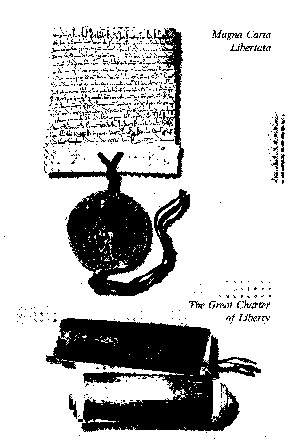
21
It's important to point out that by limiting the King's power, Magna Carta restricted arbitrary actions of
barons towards knights and proclaimed the power of law over the free people of the country.
King John was succeeded by his son Henry III (1216-1272). He was not as bad as his father but he was
continually short of money and extravagant by nature.
Henry III faced a further development of baronial ambitions and protests. They accused the King of violating
their rights and liberties. After a very bad harvest in 1257 Henry III demanded a third of all English property.
This aroused a new baronial riot. The barons finally came armed to the Parliament at Oxford and drew up
"provisions"–"Oxford Provisions" and additional "Westminster provisions"–to protect the knights from barons
which gave all the power in the country to barons. The King and his son did not want to become puppets; and
as a result a military conflict developed.
The country was divided into supporters and enemies of the King and a Civil war broke out.
The army of barons was headed (led) by Earl Simon de Montfort and was at first successful in capturing
the King's fortresses and castles. They were greeted by townsmen and students of Oxford and church bells.
In 1264 Earl Simon took the King prisoner; in 1265 – Parliament was summoned with "commons"
represented in it – two knights from a shire and two merchants from a town.
Prince Edward, Henry's son and heir, (later to succeed Henry as Edward I) rescued Henry. King Henry III
managed to defeat Simon de Monfort and killed him in a battle and secured his Crown and his rule.
The 1295 Parliament was called Model Parliament, though it assured a continuity of the 1265 Parliament of
Simon de Monfort.
The commons were summoned by the King's Writ to some of the Parliaments (one in eight before 1284; one
in three – in the later years of Edward the I's reign, one of which was the so-called Model Parliament of 1295).
The "Oxford Provisions" were not observed by Kings. So, in the 12th and 13th centuries, relationships
between the king and the barons, and the making of Parliment were the main historical phenomena of that
period.
During the reign of Edward I (1272-1307) there were not only lords, bishops and great abbots present in
Parliament, but there were also "commons". This demonstrated the growing wealth and importance of
townsmen and knights of the shire not only in the local communities but also in the whole country.
Economics and politics were very closely connected, and the King's main goal in summoning Parliament
was to raise money from the population through taxes – 1/10th from people in towns, 1/15th – from the people
in the country.

